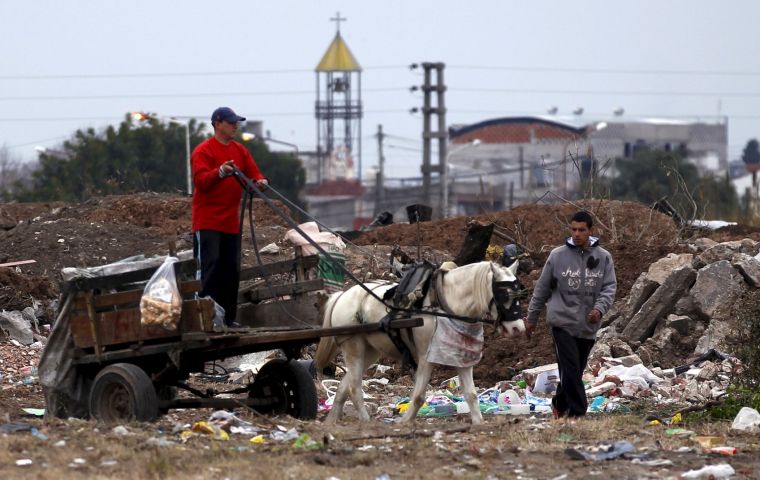MercoPress. South Atlantic News Agency
Gloomy future for SMEs in Argentina, studies find
 The crisis is expected to deepen in the next 12 months, the IPA report showed
The crisis is expected to deepen in the next 12 months, the IPA report showed According to a survey published by the Argentine Confederation of Medium-Sized Companies (CAME) report released Monday in Buenos Aires, retail sales in Argentina fell 7.3% year-on-year in May as President Javier Milei's chainsaw economic policies took a deeper toll on the purchasing power of the population.
The Retail Sales Index for SMEs encored the 7.3% annual drop already recorded in April for a cumulative 16.2% contraction in the first five months of 2024, which meant some progress after setbacks of 28.5%, 25.5%, and 12.6% in January, February, and March, respectively.
CAME's document pointed out that “the lack of sales was the main complaint of most of the businesses surveyed,” and “almost seven out of 10 businesses mentioned it as their main problem.”
“Other two conflicting points were the high logistic costs and collection problems, which, as recession progresses, become more accentuated,” it also pointed out.
Regarding inflation, CAME's study noted that “there was greater stability in retail prices in May, but with other costs such as energy, fuel, rents and wages rising,” which affected profit for “financially suffocated” retailers.
Out of the seven economic sectors surveyed, only footwear as well as textiles and apparel and footwear escaped the overall highly negative trend. In textiles and apparel, sales fell 14.1% year-on-year, while in Food and beverage sales were 9.4% down year-on-year in May, for an accumulated 20.9% decline in the first five months of the year, compared to the same period of 2023.
Bazaar, decoration, home textiles, and furniture fell 10.6% interannually for a total decline of 16.2%.
Footwear and leather goods sales rose 0.4% annually but accumulated a decline of 9.9% in the first five months of the year.
Pharmaceutical items sank 20.3% in May for an accumulated 29.1% interannual drop, which people are even skipping some of their prescription drugs.
Parfumes went down 27.8% in May and 30.4% year on year in the first five months of 2024.
Hardware, electrical, and construction materials recorded a 7.8% annualized plunge while accumulating a 19.6% retraction in the first five months.
Textiles and apparel sales rose 14.1% yoy in May, and accumulated an increase of 7.6% in five months, compared to the same period of 2023.
At any rate, the consumers' purchasing power has deepened in recent months across the board with a sharp drop in demand. To make matters worse, a recent survey conducted by Industriales Pymes Argentinos (IPA) heralded that the crisis would deepen in the next 12 months with 31% of the SMEs reviewed defining their situation as “very bad”, while another 38% described it as “bad.”
The Argentine Chamber of Commerce and Services (CAC) found concurring figures in a study focused on April's activity when a 4.5% year-on-year drop in consumption for that month was detected. “April was hard and, in May, demand continued to fall,” restauranteur Ariel Amoroso explained. “In a year-on-year comparison, comparing last May with the same month of 2023, consumption in restaurants fell by 30%,” Amoroso, former president of the Association of Hotels, Restaurants, Coffee Shops and Cafés (AHRCC) of the City of Buenos Aires, added.
Restaurant manager Pablo Bangardino said drops ranged between 20 and 30% but “there were even extreme cases of some restaurants where the percentage was higher and they had to close.”




Top Comments
Disclaimer & comment rulesCommenting for this story is now closed.
If you have a Facebook account, become a fan and comment on our Facebook Page!